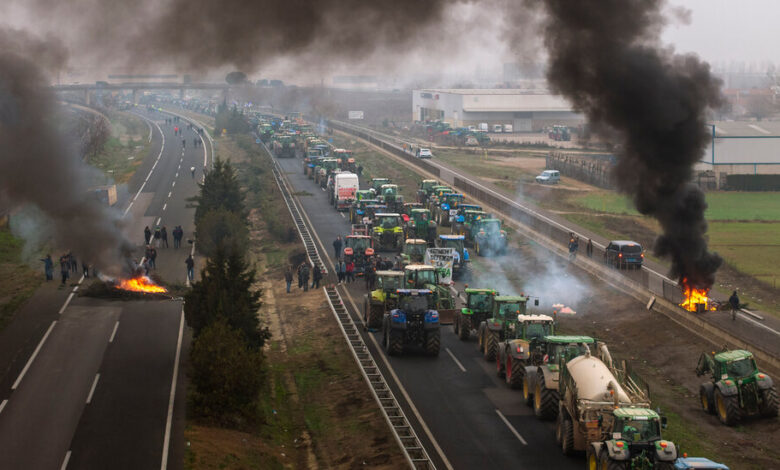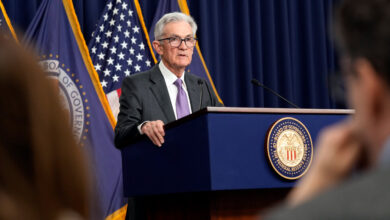Disinformation Spreads Amid EU Elections

Government ministers and other political figures were also disseminating xenophobic conspiracy theories about immigration ahead of the vote. Spanish fact checkers debunked a video of an assault and robbery against an older man — it was filmed in Los Angeles, not Barcelona, they said — and punctured its claim about the race of the perpetrator, which the police did not disclose. Amid opposition to housing plans for asylum seekers in Ireland, local fact checkers determined that an image shared on social media showing the national police confronting protesters had been generated by artificial intelligence.
Influence operations from Russia and other state actors are a major concern in the election, experts said. European Union members such as Bulgaria and Slovakia are especially vulnerable, according to local fact checkers, who cited studies showing that fewer than half of citizens in those countries believe that Russia was responsible for the conflict in Ukraine, which it initiated.
Smear campaigns against Ursula von der Leyen, the president of the European Commission, have surged in recent months, according to the East StratCom Task Force, a group of disinformation experts empaneled by E.U. officials. A Russian propaganda outlet was linked in February to an A.I.-generated deepfake of a French news anchor falsely claiming that Emmanuel Macron, the president of France, opted against visiting Ukraine while there were assassination fears.
Brussels has tried to block propaganda from Moscow, but European audiences are still exposed to it. Researchers from Sodertorn University in Sweden and the civic group Alliance4Europe said that, as recently as Tuesday, at least 29 TikTok channels from banned Russian entities or their copycats were accessible within the bloc, including one account with nearly three million followers.
TikTok said in a statement Thursday that the relevant accounts were now blocked and that it was conducting a review “to understand an issue that affected the block TikTok applies to some state-controlled media accounts in Europe.”
A Spanish fact-checking group, EFE Verifica, said last month that it was among the targets of a pro-Russian operation that had tried for months to distract journalists and fact checkers with false alerts. The campaign, alternately nicknamed Operation Overload or Operation Matryoshka, after Russian nesting dolls, used email accounts and social media profiles on X to blast already overburdened disinformation experts with frivolous requests to debunk content. EFE said it alone had received 50 emailed pleas since December to investigate text messages, photographs and videos.



